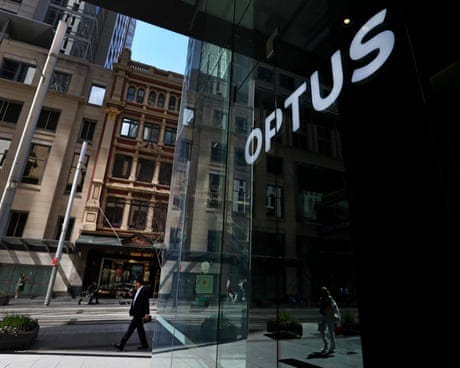The Optus triple zero disaster was a classic failure of neoliberal reform. In place of the single emergency call system that worked in the period before privatisation and liberalisation, we now have multiple networks, which are supposed to connect their calls to Telstra. Optus lobbying earlier this year successfully delayed a proposal(introduced in response to an earlier outage in 2023) for real-time information sharing on such outages.
Instead, calls reporting the most recent failure were directed to offshore call centres, where the operators failed to “escalate” them properly. The days-long delays in working out the extent of the problem reflect a corporate culture where triple zero calls are seen as an inconvenient cost burden rather than a vital community service. It’s the same culture that has seen Optus fined heavily for misleading consumers.
But until the recent spate of failures, telecommunications was seen as one of the increasingly rare sectors where privatisation and competition had produced improved outcomes for consumers. During the era of neoliberalism, the cost of telecommunications has plummeted, while the range of services has expanded massively. Whereas an international phone call cost more than a dollar a minute when telecoms were deregulated in the 1990s, they now cost only a cent or two per minute even on those plans that don’t include unlimited calls. As a result, telecommunications is regularly cited as an area where neoliberal reform has been successful.
A closer look at the record tells a different story. Technological progress in telecommunications produced a steady reduction in prices throughout the 20th century, taking place around the world and regardless of the organisational structure. The shift from analog to digital telecommunications accelerated the process. Telecom Australia, the statutory authority that became Telstra, recorded total factor productivity growth rates as high as 10% per year, remaining profitable while steadily reducing prices.
 Optus claimed live updates on triple-zero outages would impose ‘huge burden’ months before outage
Optus claimed live updates on triple-zero outages would impose ‘huge burden’ months before outage
But for the advocates of neoliberal microeconomic reform, this wasn’t enough. They hoped, or rather assumed, that competition would produce both better outcomes for consumers and a more efficient rollout of physical infrastructure. Optus was an artificial creation of the reform process. In return for acquiring the publicly owned satellite network Aussat, Optus was given a regulatory head-start of six years, during which it was the only competitor to Telstra.
The failures emerged early. Seeking to cement their positions before the advent of open competition, Telstra and Optus spent billions rolling out fibre-optic cable networks. But rather than seeking to maximise total coverage, the two networks were virtually parallel, a result that is a standard prediction of economic theory. The rollout stopped when the market was fully opened in 1997, leaving parts of urban Australia with two redundant fibre networks and the rest of the country with none.
The next failure came with the rollout of broadband. Under public ownership, this would have been a relatively straightforward matter. But the newly privatised Telstra played hardball, demanding a system that would cement its monopoly position in fixed-line infrastructure. The end result was the need to return to public ownership with the national broadband network, while paying Telstra handsomely for access to ducts and wires that the public had owned until a few years previously.
Meanwhile the hoped-for competition in mobile telephony has failed to emerge. The near-duopoly created in 1991, with Telstra as the dominant player and Optus playing second fiddle, has endured for more than 30 years. The 2020 decision to allow a merger between the remaining serious competitors, TPG and Vodafone, was an effective admission that no more than three firms could survive. Unsurprisingly, prices have increased significantly since then.
And in crucial respects, three will soon become two. Optus and TPG now share their regional networks, a recognition of the fact that telecommunications infrastructure is a natural monopoly, and that the idea of “facilities-based competition” is an absurdity. If we are to have competition, the best model is that of the NBN. That is, a single wholesale “common carrier”, which allows retailers using its network to compete for customers.
But as we’ve learned with privatised electricity distribution businesses, privately owned monopolies are always looking for ways to increase profits at the expense of consumers. Regulation has proved ineffective, a fact that is unsurprising given the massive imbalance of resources between regulators and the companies they oversee.
The likely outcome of the triple zero disaster will be the addition of some new patches in the regulatory quilt and the ritual defenestration of some senior executives. But what we actually need is a reassessment of the whole neoliberal experiment and an acceleration of the return to public ownership of infrastructure that is already under way.